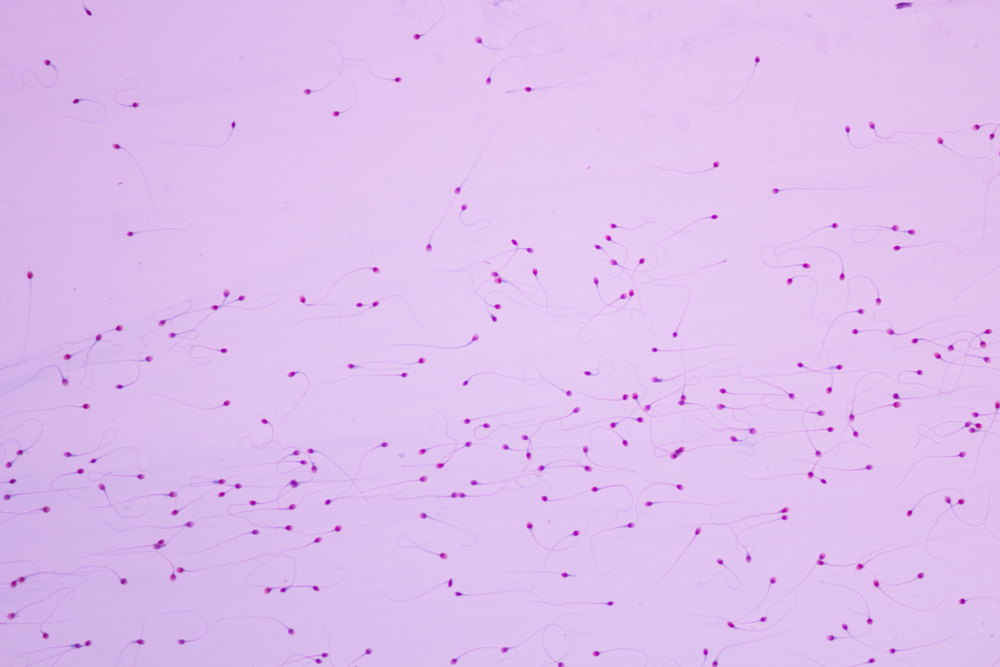Researchers at the University of Technology Sydney (UTS) developed an AI tool to identify sperm in men with severe infertility quicker and more accurately than medical professionals.
The study was presented at the 39th annual meeting of the European Society of Human Reproduction and Embryology (ESHRE). The research team demonstrated an AI that could help men with limited sperm father biological children.
Currently, these patients must undergo a procedure to remove a portion of their testes, from which embryologists manually extract sperm. This sperm is then used to fertilize the partner’s eggs via Intracytoplasmic Sperm Injection (ICSI) treatment.
The current process is laborious and time-consuming, often taking up to 6 hours and potentially leading to fatigue that impacts the accuracy of sperm identification.
The process has a high failure rate and often has to be repeated.
The study, led by Professor Majid Warkiani in the UTS School of Biomedical Engineering, presents an AI tool known as SpermSearch, that accelerates this taxing process.
Lead author Dale Goss, a PhD candidate, stated that “This tool has the ability to give patients who have very little chance of fathering their own biological children an increased chance.”
He added, “The algorithm improves antiquated approaches that have not been updated in decades. It will ensure the rapid identification of sperm in samples, which will not only increase the chance of a couple conceiving their own biological children but also reduce stress on sperm and increase efficiency in the laboratory.”
How it works
The researchers highlighted that approximately 1% of all men, around 5% of couples seeking fertility treatment, suffer from non-obstructive azoospermia (NOA) — a severe form of infertility characterized by the absence of sperm in semen.
Embryologists currently identify sperm for ICSI by painstakingly shredding tissue samples and separating them with forceps or fine needles. Any sperm present is then released into a specially prepared liquid, placed in a petri dish, and analyzed under a microscope. The process is challenging due to contamination from other cells and particles, and if the embryologist misses the sperm, success rates diminish.
The AI-powered SpermSearch tool is designed to speed up this process. The team trained the AI algorithm using thousands of microscope images with sperm labeled. The AI tool learned to identify what sperm looked like through image analysis.
The team used both healthy sperm samples and testicular tissue samples from seven patients diagnosed with NOA for testing.
These patients, aged 36 to 55 years, had previously undergone surgical sperm retrieval at the clinic and donated leftover tissue that was prepared for sperm retrieval but not used.
The AI system was then pitted against an embryologist in a time trial for sperm identification and accuracy. The AI identified sperm in each area of droplet viewed in less than a thousandth of the time taken by an embryologist. It found 60 more sperm and was 5% more accurate than the embryologist per viewable droplet area.
However, the researchers cautioned that their study is based on a proof-of-concept test, and a clinical trial is required to ensure the technique’s efficacy and performance in sperm detection.
Carlos Calhaz-Jorge, Professor and chair of ESHRE, not involved in the study, said: “For men diagnosed with non-obstructive azoospermia, ICSI with sperm retrieved from the testicles is the only realistic chance of having biological children. This is a preliminary study on the use of AI for finding healthy sperm in men experiencing this type of infertility. Finding healthy sperm under the microscope in fragments of testicular biopsies can be an arduous process. The prospect of using AI to make the process quicker and more accurate is very interesting. We need to see more research to build on these results.”
AI’s role in medicine is well-established, but the last 2 months have witnessed a vast range of highly-promising studies.
For example, AI is enhancing MRI images, helping dentists develop tooth crowns, detecting retinal disease in infants, detecting heart disease from ECGs, and speeding up drug discovery.
While all of these applications need to go through extensive clinical trials, AI is sure to take a central role in future medicine.





